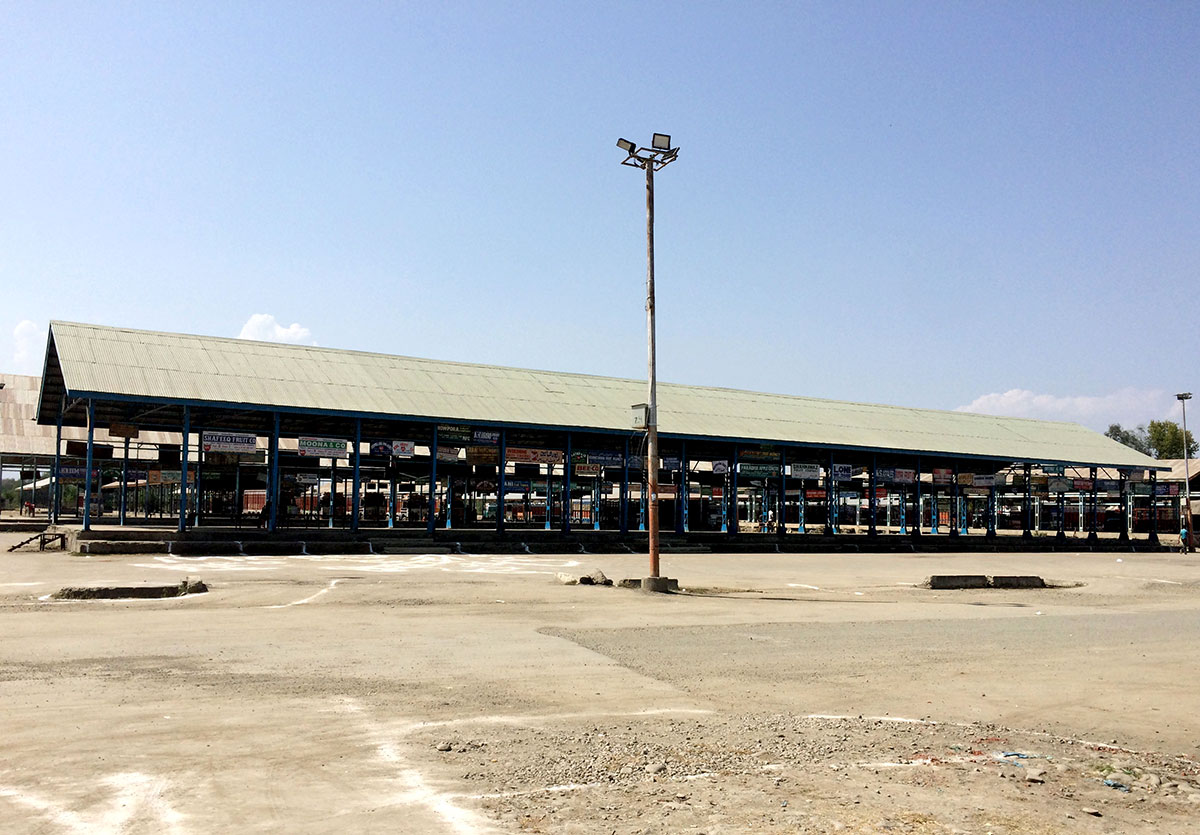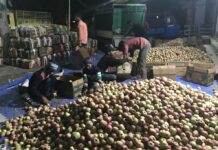With orchards as deserts as Srinagar streets, Kashmir’s apple cart may upset the economy, reports Umar Mukhtar

Every morning, Ali Mohammad, an apple grower in a Pulwama village goes to his orchard, almost at 10 minutes walk from his home. Routinely, he picks up the fallen apples (giraan)and keeps them in a heap. Usually, he collects 15 baskets of fallen apple a day. Unlike last year, there are not buyers for the giraan around, this fall.
In comparison to 2018, the difference is stark on the streets as well as the orchards. In September last year, the labourers would be seen harvesting the apple, grading and packing them as load carriers would be waiting anywhere in south and north Kashmir. But this spectacle is yet to be seen this year. The rollback of autonomy and downgrade of Jammu and Kashmir state has not only hit the political turf hard but the commerce as well. Kashmir’s Rs 8000 crore plus apple economy is directly hit by the circumstances.
Javaid Ahamd (name changed) is a fruit trader, operating from Pulawma. Till July, he was busy in his routine. He usually rents a big chunk of land, where he erects tents and makes it the base of his operations. His purchase moves from orchards to this centre where, after grading, the fruit is packed and driven to the market. This year, a bumper crop led him to make the preparations early.
Late last month, Javaid hired workers who erected many tents. The apple growers were also happy that even if they are not able to make it to the mundi, there is somebody who can purchase the crop.
But, the next day when people went to the spot, they fund everything missing. Nobody knows why. People believe that Javaid is unlikely to have his routine this year.
But Javaid is not the only trader who decided against apple purchase. There are many such people who do not want to get into the harvest business. This is expected to hit the apple cart.
Right now, giraan is a major problem. This fruit would usually move to the market but its continued presence in the orchards is attracting rodents. “They are a potential threat to the trees,” said Hilal Ahmad an apple grower.
The apple growers lack any idea about what they should do to it. In case they would not get buyers, they would drive it to the local mandi.
South Kashmir has three major mandi’s operating from Kulgam, Shopian and Pachhaar.
Last year, Shopian mandi alone witnessed around Rs 1000 crore plus business. This year, the gates of the mandi’s are locked and the usually crowded market wears a deserted look. A visit to any of these mandis would lead to a group of boys playing cricket. Stray dogs are visible from a distance.
“There are various people associated with these markets,” Irshad Ahmad, a tea seller near Pachhaar said. “Itis not all about the buyer and seller. People who sell tea, transporters, and labourers are associated with it.”
Normally, the traders from the outside states would flock to these markets early August and start making arrangements for their purchase. The presence of the local and non-local buyers had its own benefits. The presence was encouraging competition and the sellers would get the best price. This year, no non-local buyer has actually reported to none of the three south Kashmir mandis, so far, trade insiders said.
In such a situation, trade insiders said, an immediate alternative was to store in controlled atmosphere storage. But, there are two limitations. “It is not possible for the small growers to bear the costs and we do not have much of the infrastructure available where we could store the entire crop,” said Hilal Ahmad. Kashmir’s cold storage facility is slightly more than one lakh metric tonnes. Even using this facility would require a communication facility.
Most of the apple trade is dependent on the cell phone. Traders are used to sending photographs and videos of their crops directly from the orchards. For more than a month now, the cell phone network is jammed. Growers and the commission agents would be constantly in touch with the Azadpur mandi to understand the mood of the market, the rates and the freight. Now it is not possible.
“The silence of the government tells the story of a looming crisis,” insist a grower Shiraz. “The only information is that comes from the Radio Kashmir and that is too little and nobody can vouch for its credibility.”
Hilal Ahmad who expects almost a 2000 box crop from his own orchards is in a fix. “I do not know of the rate and I have no information about the freight,” Hilal said. “I am literally on tenterhooks because the crop is days ahead of harvest.” In the absence of formal communication channels and media, people are scared by the rumour-mongering.
In case of the failure of the crop, the losers will not be the growers alone. Banks and other businesses will suffer more than the growers.















